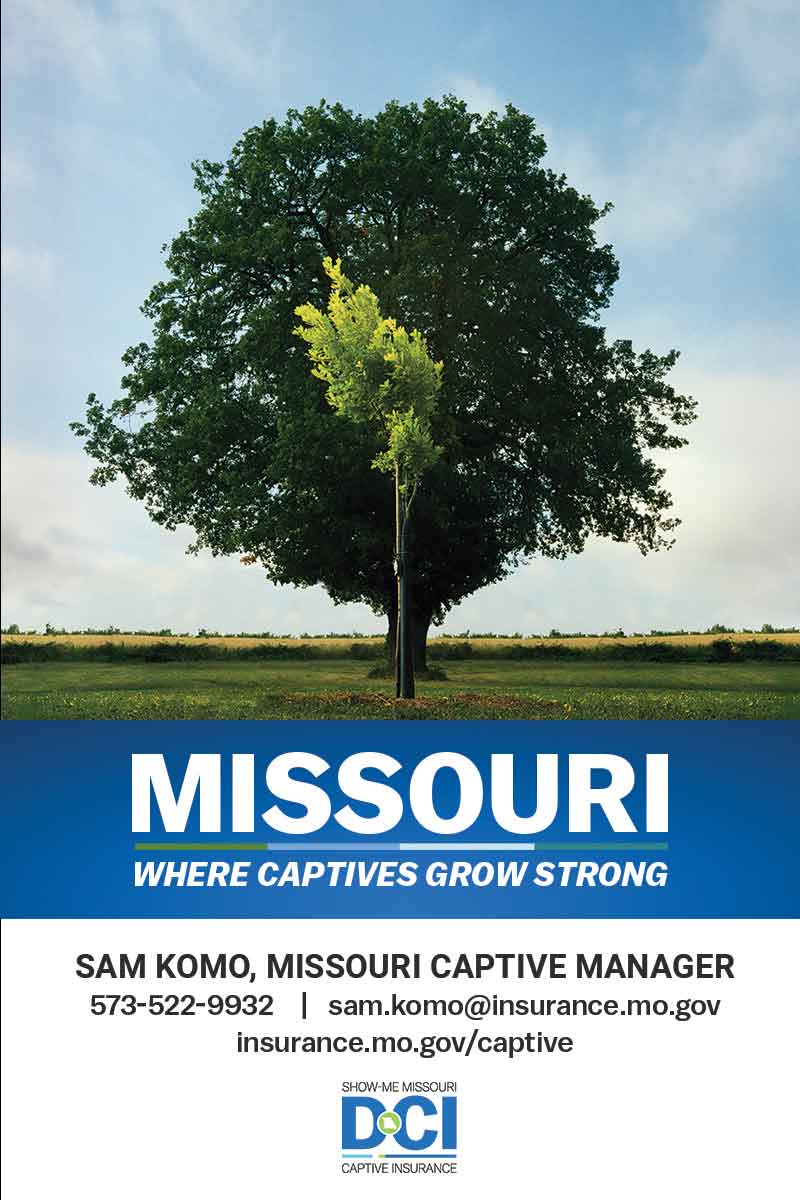Alan Fine
Michael Low and Alan Fine preview the Western Region Captive Insurance Conference, break down what the schedule has to offer, and discuss what delegates can expect
Scottsdale, Arizona, will play host to the 2019 Western Region Captive Insurance Conference (WRCIC) between 20 and 22 May. The event, hosted by the captive insurance associations of the three member states: Utah, Missouri, and Arizona, invites delegates to “tee up your captive’s future” and offers a diverse schedule.
Ahead of the conference we spoke to two of the organisers, Alan Fine, partner at Brown Smith Wallace and member of the WRCIC organising committee, and Michael Low, partner at Kutak Rock and chairman of the WRCIC, to find out what attendees should expect and how the conference had evolved from last year’s event in St Louis.
What will this year’s WRCIC offer?
Michael Low: All in all, I think we have got a good programme design and we look forward to a healthy attendance. We have a captive 101 programme, which provides the background on how and why you form and license a captive. We have lined up two excellent speakers on captive tax issues, which is a huge issue right now in the US: Chaz Lavelle and Tom Jones. We also have an investment track which covers the permissible investments that are recognised for purposes of captives–what you should and should not do.
We are going to take a glimpse into the future by looking at some of the emerging issues for captives beyond the tax situation, such as employee benefits, new cyber coverages and deductible reimbursements. These issues are interesting because I do not know the extent to which captive owners and prospective captive owners will focus on the coverages captives can provide.
On top of that, we have some really fun activities tied in. Arizona is a golf state and we have a golf tournament at the private Scottsdale golf course, Gainey Ranch, as well as Top Golf, which is more sociable.
Alan Fine: We are looking ahead at how we can best move forward from where we are today. There are different tracks and different sessions throughout the conference that are designed to help delegates think about how they are using their captive today and the different opportunities that might be available to them on a go-forward basis.
In terms of demographics, ideally it would be a cross-section of people finding out about captives for the first time, those with awareness of captives looking to do business in the region and those in the industry to continue their education. I think it will probably be more weighted towards the latter two categories, particularly those that might be interested in the captive space in Phoenix.
What sets it apart and what are you most excited for?
Fine: It’s the quality of the speakers and the smaller group setting. Sometimes there is a better opportunity to meet with new people when it is not so overwhelming like some of the larger conferences are.
I am looking forward to the opportunity to network with people that I do not get to see very often, as well as the opportunity to listen to speakers that are really dedicated to the industry.
Low: The strength of the speakers. I am particularly excited to hear Lavelle and Jones on tax. They are very experienced and well-recognised for their expertise in the whole tax area. I would say that tax issues certainly drive a lot of the consideration whether you form a captive insurer or not. We have a number of cases, such as Avrahami and the Reserve Mechanical, that point to directions where the Internal Revenue Service (IRS) seems to be cracking down on some of these smaller captives for their tax avoidance schemes. There is a lot of interest in that subject, and if we get some changing winds taking place with the IRS and how they view captive insurers, that is going to be a major theme of our programme here.
What was the motivation between bringing in Tom Jones and Keith Shraad in as the keynote speakers?
Low: Our luncheon speaker Keith Schraad is the newly confirmed director of the Arizona Department of Insurance. He approaches things from a different standpoint than many commissioners; he is very pro business, his background is very technology heavy and he’s passionate about new technology. He’s interested in things like blockchain and ways to better utilise captives in insurance companies in terms of emerging technologies. Schraad is very erudite in his vision for what he sees taking place between captive insurance and technology, so that should be an interesting discussion.
Fine: Issues with the IRS are significant in the US. The concepts, particularly those that the IRS have argued and that the tax court judge in the Reserve Mechanical case addressed, are impactful both on small captives taking 831(b) election and huge captives of a Fortune 500. Those concepts impact all captives throughout the industry and so, because of the significance of tax issues–and because Tom Jones is a very good speaker who really reaches the audience–we thought that he would be a suitable person to deliver our keynote speech.
I am very excited because I always enjoy listening to Jones. Every time I hear him speak I come away with, usually, more than one nugget of knowledge that will help me in my practice with
my clients.
How has the conference grown from last year?
Low: Last year in St Louis, the conference was very well put-on and well thought-out, but it fell short of expectations in terms of attendance. We’re trying to create a lot of interest because you can have the best programme in the world, but if it is not well attended, it can be a disappointment.
Fine: Having served on the planning committee, you learn from what went well the prior year and just keep doing those things. In terms of things that might not have gone well, you must take steps to try to improve in those areas. I thought last year, other than perhaps from an attendance standpoint, the conference went very smoothly. The most important thing is to ensure that we are staying relevant, that the sessions we are offering are ones that the participants are interested in.
Any final thoughts as we head toward the conference?
Fine: I am very much looking forward to it, I am very excited for the sessions and the networking opportunities. I think it is going to be a great conference, I look forward to seeing everyone there.
Low: Only that if any of your readers are in the neighbourhood, we would sure welcome them swinging by and meeting our group, possibly participating in our programmes. I was down at the Captive Insurance Companies Association (CICA) Conference and it really profiled in an international context. Although we are centred in the West, it would be great if we could attract some international presence and interest. We will not be as big as the CICA conference but we’re looking to be recognised in that second tier of major conferences.





